- The N.C. Supreme Court questioned lawyers on both sides of a dispute over $785 million in additional education spending tied to the Leandro school funding lawsuit.
- Justices will decide whether a trial judge can order additional state education spending. The state's highest court also will decide whether that judge can bypass the General Assembly and force other state officials to transfer the money.
The N.C. Supreme Court will decide in the days ahead whether a judge can order the state to spend an additional $785 million for education-related items. Justices also will decide whether the courts can bypass the General Assembly and order the money transferred out of the state treasury.
Those are the key questions in the latest stage of the long-running Leandro school funding case. The case that dates back to 1994 returned to the state’s highest court Wednesday for oral arguments.
“Whether the judiciary can order the state to implement and fund money for a sweeping, eight-year, 146-item, comprehensive remedial plan … that would remove decision making over education from the people and dictate education policy and spending for the state for a decade is yet another question,” said attorney Matthew Tilley, representing Republican legislative leaders, early in the 90-minute hearing.
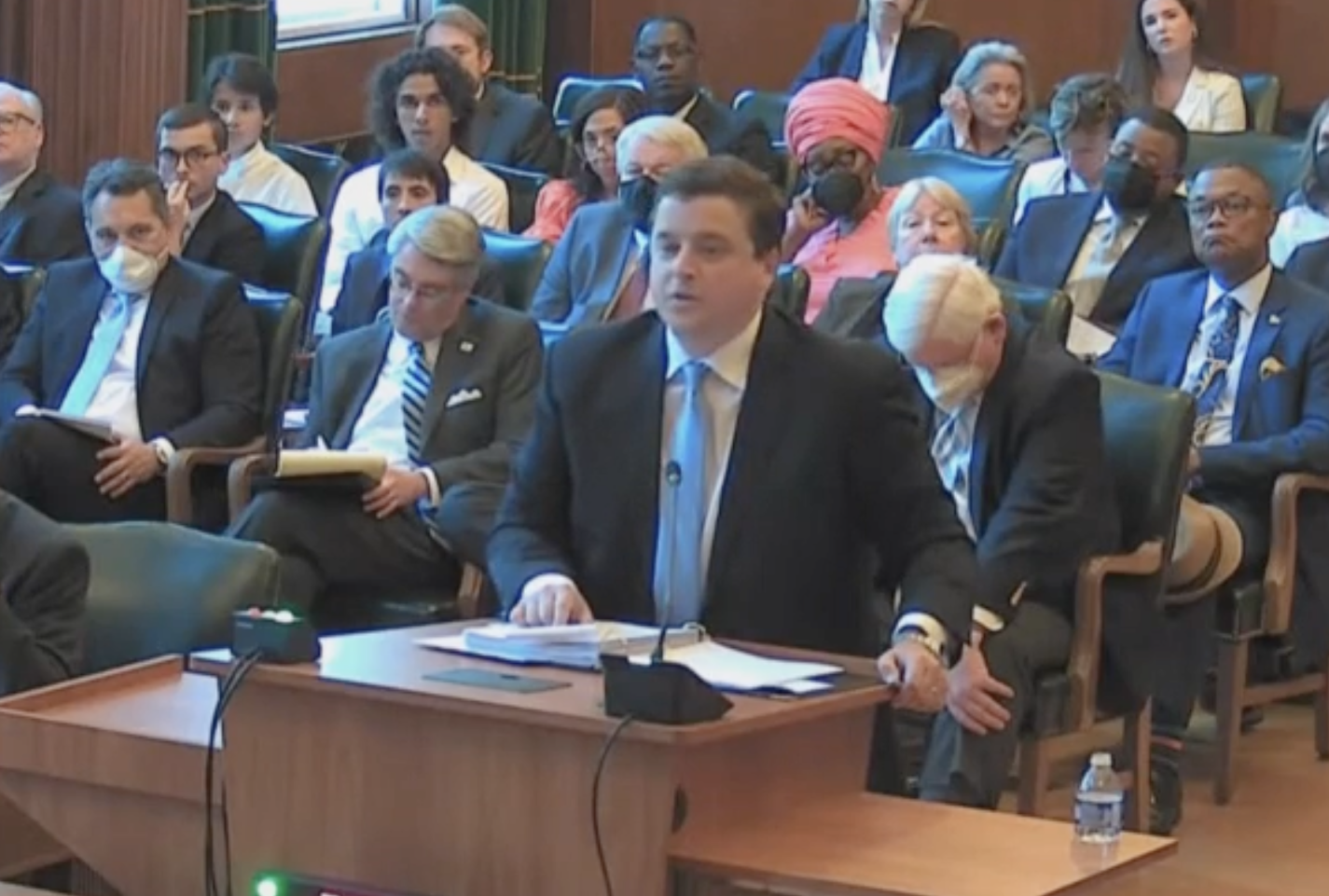
Lawmakers argue against both the court-ordered spending and the forced money transfer. They contend that the state Supreme Court cannot use one decades-old trial about public education in a single county, Hoke, to justify measures that would apply to every school system in the state.
Legislators also raise questions about a Leandro plan developed by state government’s executive branch without legislative input. That multiyear plan has a price tag of at least $5.6 billion, with the chance that the cost could rise substantially based on multiple mandated studies.
“The executive branch is going to be necessarily tempted to use admissions in a court case to get orders that would provide agencies things that they can’t get in the legislative process,” Tilley said. “It’s a way to circumvent the process.”
The state controller argues against the forced money transfer. It would place him in a “double bind,” attorney Robert Hunter argued. The controller would violate state law and violate his oath of office if he transfers money without authorization from the legislature. “We’re all for the schoolchildren of North Carolina getting whatever money they’re entitled to through an appropriation process.”
Justice Sam “Jimmy” Ervin IV, one of four Supreme Court Democrats, asked Hunter about the implications of his argument.
“Your position then is limited to the notion that you essentially can tell the General Assembly … to spend the money, but if they elect not to, there’s nothing more that can be done?” Ervin asked.
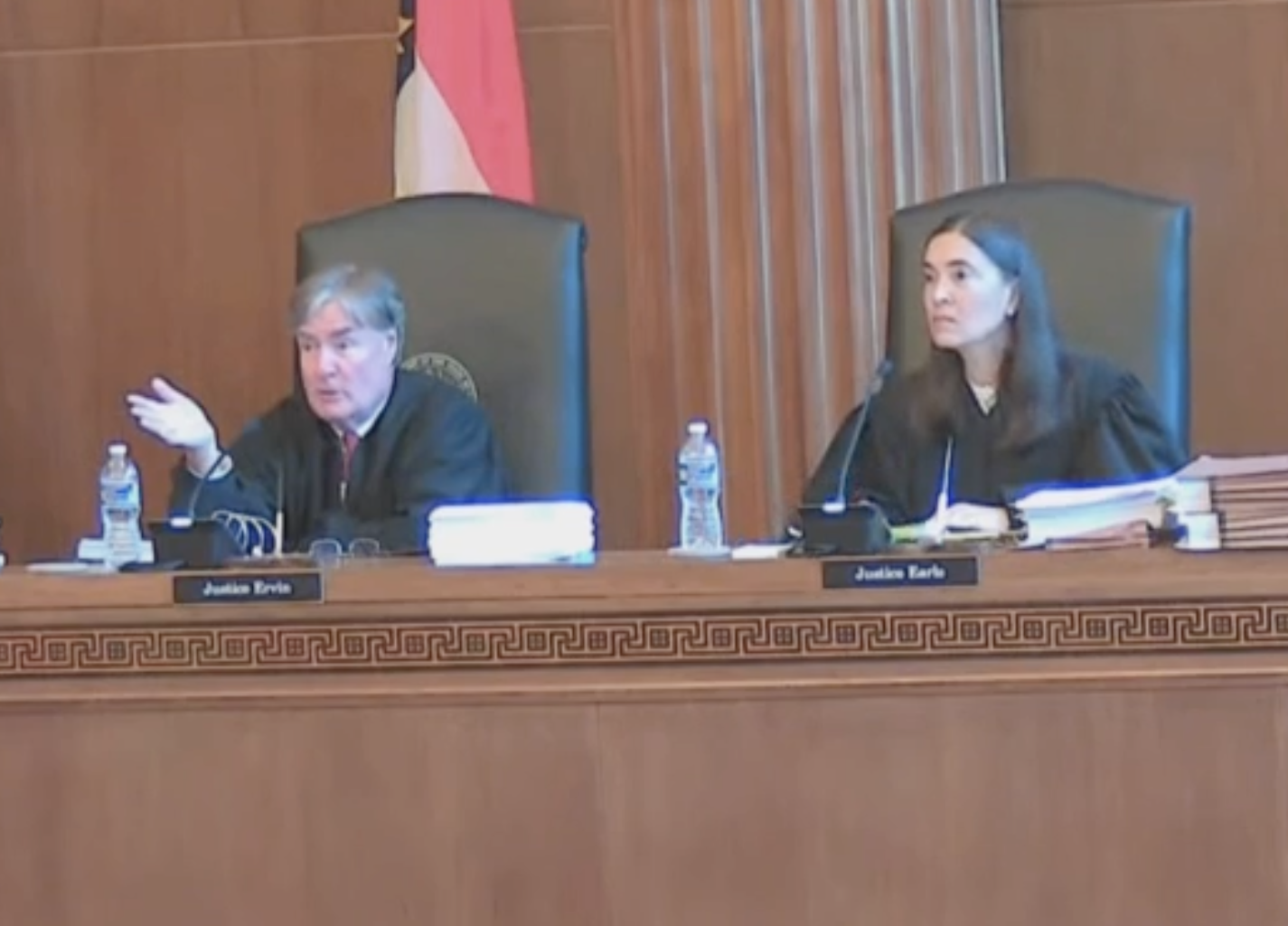
“That’s what I think you said in Cooper v. Berger,” Hunter replied, citing Ervin’s 6-1 decision in a 2020 case. At that time, Ervin confirmed that state government’s legislative branch holds complete power over the state treasury.
Justice Robin Hudson, also a Democrat, pushed back on Hunter’s argument. She cited language from an earlier 2004 state Supreme Court Leandro ruling.
“This court said when the state fails to live up to its constitutional duties, the court is empowered to order the deficiency remedied,” Hudson said. “If the offending branch fails to do so or consistently shows an inability do so, a court is empowered to provide relief by imposing a specific remedy and instructing the recalcitrant state actors to implement it.”
Lawyers representing both state government’s executive branch and the Leandro plaintiffs argued in favor of both the court-ordered spending and the forced money transfer.
Amar Majmundar, senior deputy attorney general at the N.C. Justice Department, rebutted the suggestion that state lawyers colluded with plaintiffs to come up with the multiyear, multibillion-dollar Leandro plan.
“We certainly wanted plaintiffs to be involved in that process because we wanted to finish this,” he argued. “We wanted to have dominion over the issue. We wanted to own the problem.”
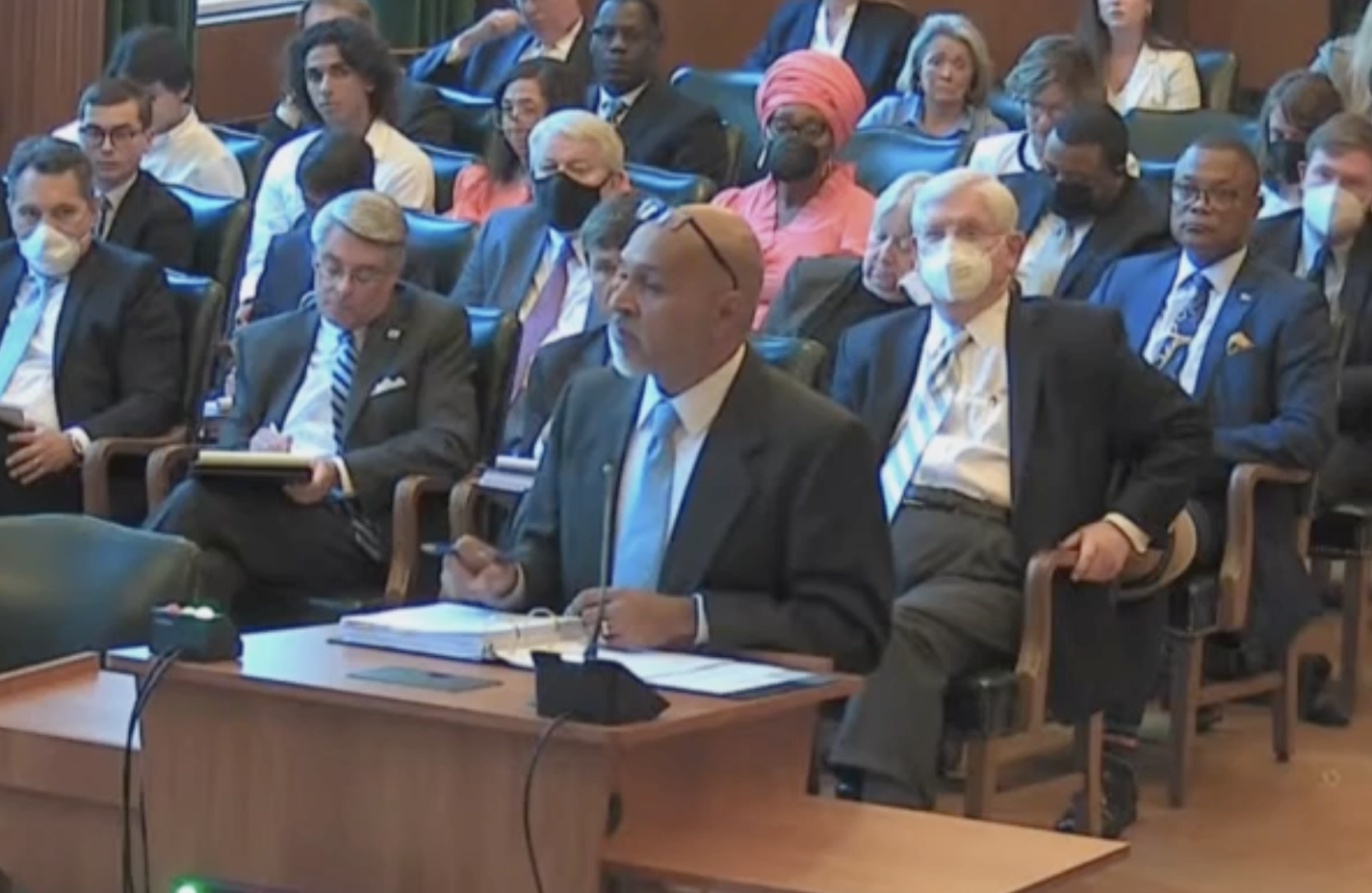
Majmundar pushed back against legislators’ arguments that they alone control how money is spent. “To accept the truth of their claims would be to make broadly acceptable the idea that one branch of government can nullify the other two simply by controlling the money — that the branch with the purse has all the power.”
Chief Justice Paul Newby, a Republican, peppered Majmundar with questions about prior Leandro proceedings that led to the current dispute. Newby repeatedly asked for citations of a court order that spelled out facts of a statewide violation of children’s constitutional education rights.
“Nobody is contesting that every child is entitled to a sound basic education,” Newby said. “But we are a court of law, and we have to follow certain procedures. Those procedures say that every party will have a day in court.”
Attorney Melanie Dubis reminded the court that she has represented plaintiffs in the case for 27 years. She labeled the issue before the justices “very narrow.” “When the state of North Carolina violates the fundamental, affirmative constitutional right to the privilege of education — for 20 years — can this court do anything about it?”
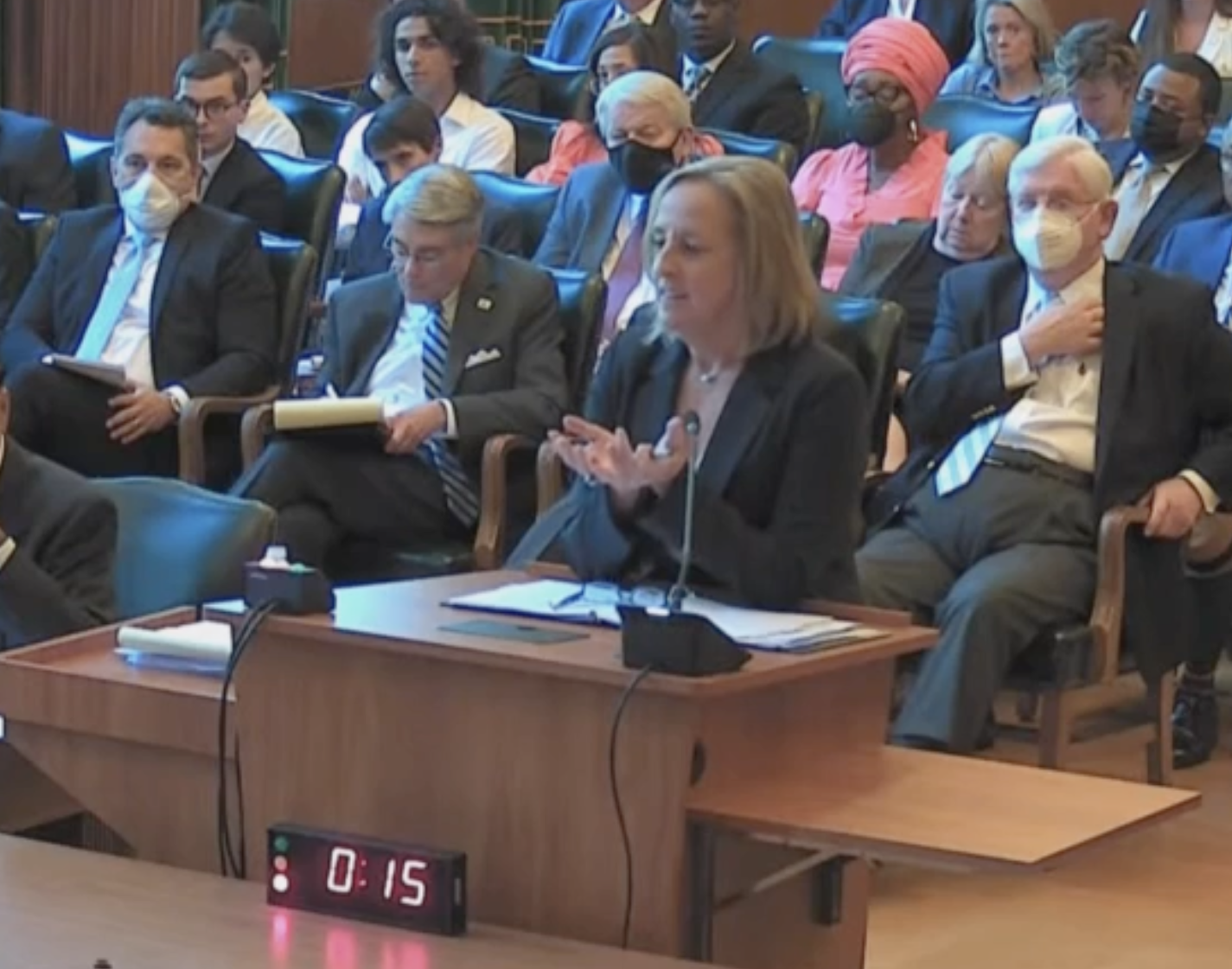
Justice Michael Morgan, a Democrat, asked Dubis what she believes the Supreme Court should do.
“What recourse, if any, in your view, would the North Carolina judicial branch — as a co-equal branch of government — would have when the General Assembly fails to fulfill an order that has been issued by a representative of the judicial branch … where that order includes a financial component?” Morgan asked.
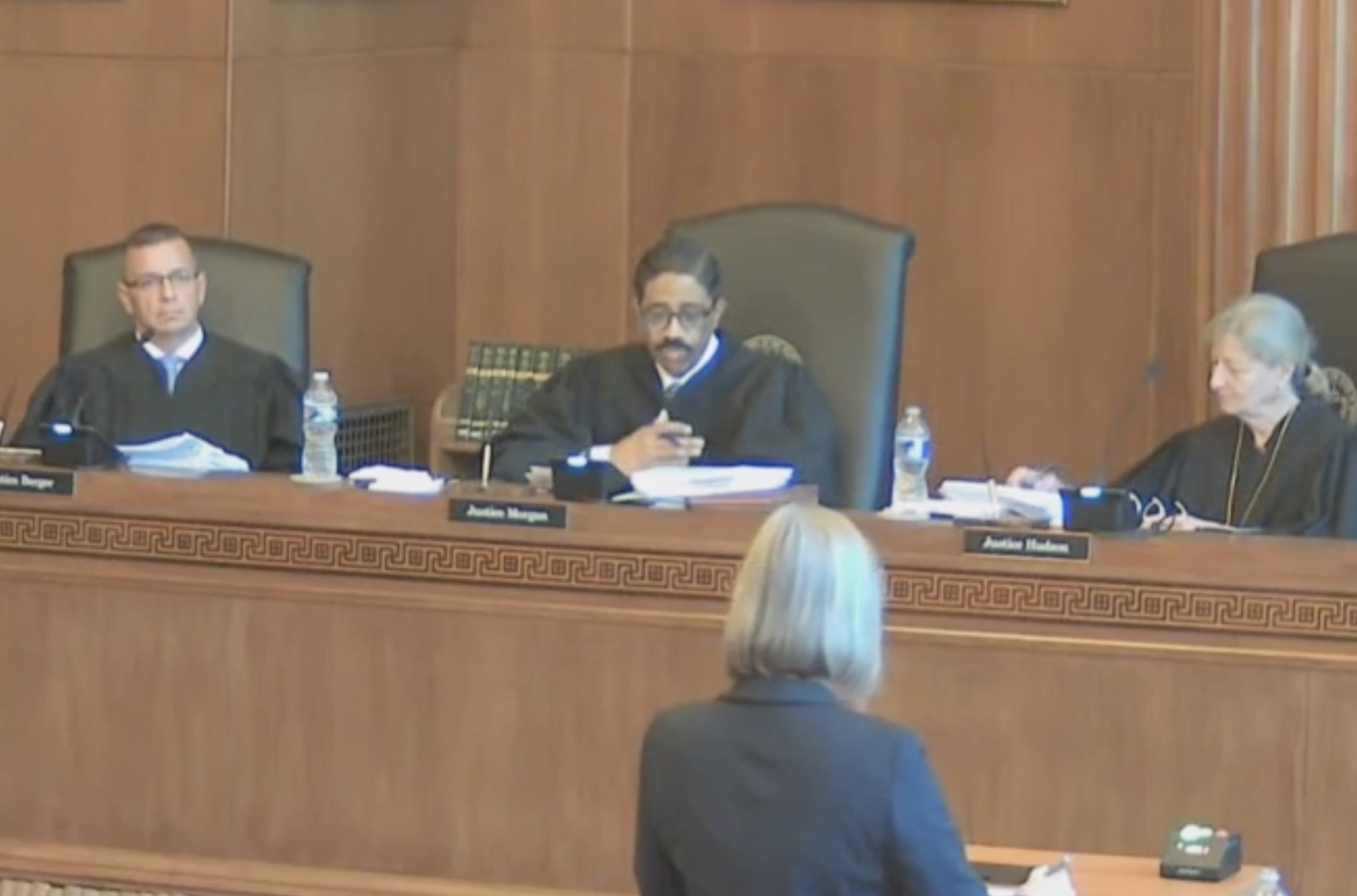
“This is unique right — the right to the opportunity to a sound basic education,” Dubis responded. “As a co-equal branch of the state, the court has a duty to guard and maintain that right.”
“The legislature is not above the law,” Dubis added. “The legislature cannot carry out its constitutional duties in an unconstitutional way, which is what it has done for the last 20 years.”
Democrats hold a 4-3 majority on the state’s highest court. There is no deadline for a ruling in the latest Leandro dispute. A previous state Supreme Court order indicated that justices will issue a decision at a future date of their choosing.